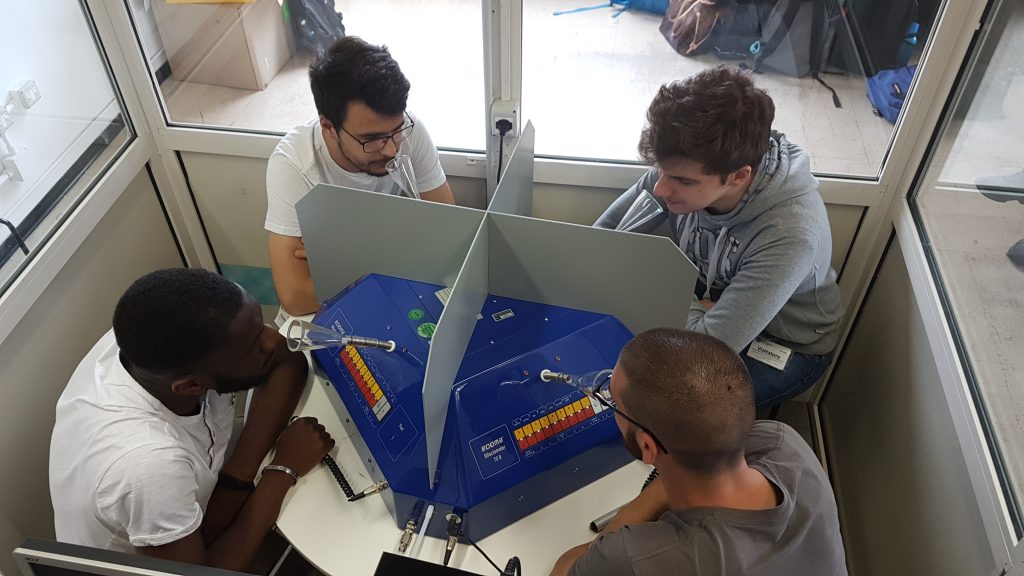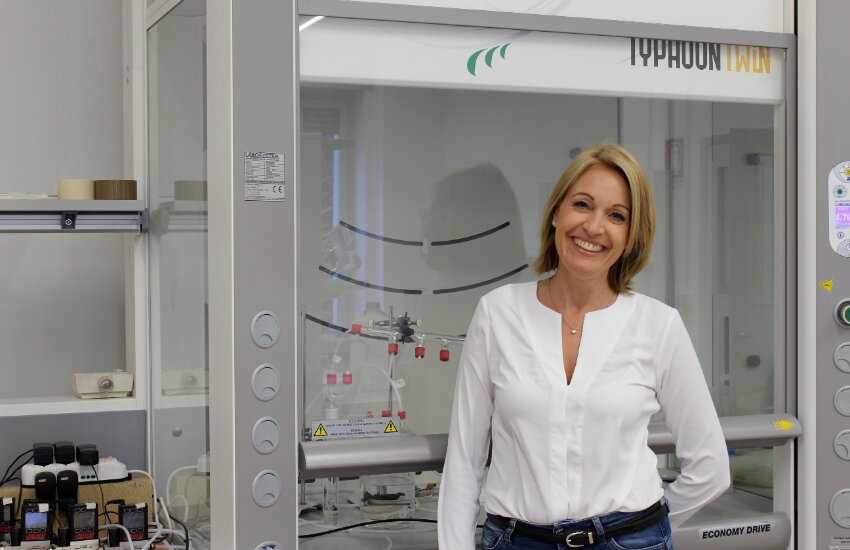Some people deal with odours for a living. No, we’re not talking about perfumeries. We are referring to unpleasant odours and to the team of chemical engineers at the Politecnico di Milano who are doing their best to study them and, as far as possible, to prevent us all from having to plug our noses. To find out more, we met Selena Sironi, head of CMIC‘s Olfactometric Laboratory.
In your laboratory, to put it very simply, you “smell the smells”. For what reason?
If you say it like that, it sounds funny! I used to suffer because of this label, but nowadays I am very proud. I had the courage to accept the challenge of odour measurement when I was 25 years old, when few believed that this was a discipline to be approached with rigour and scientific method. More than twenty years later, I can say that my intuitions were right and this topic has formed the subject of research and scientific publications, as well as becoming a subject taught in degree and masters courses.
Today I am scientifically responsible for the Olfactometric Laboratory at the Politecnico. The activity of my research group is to qualify and quantify odour emissions, mainly from industrial sources but not exclusively. And to assess – by studying the transportation and volatilisation of odorous substances – how odour diffuses and disperses in the environment and how it is perceived in places close to the source through to the homes of citizens located further away.
What type of tools do you use?
We try to obtain as much information as possible about the odour compounds we analyse. We make use of analytical instrumental techniques such as gas chromatography combined with mass spectrometry, sensory techniques of dynamic olfactometry using dilution systems, and then a panel of selected individuals and sense-instrumental techniques through the use of electronic noses. In any case, in addition to the tools, it is necessary to have an in-depth knowledge of the production and emission processes that characterise industrial plants. This is why a chemical engineer is so important in order to really understand where the problems that lead to odour nuisance lie.
How did the idea of devoting yourself to the “world of smell” come about?
The laboratory was born out of a specific need in the area. In 1997, after the waste emergency in Milan, the construction of facilities for the mechanical biological treatment of unsorted waste created the need to understand how to measure and contain the odour emissions that would result from such plants. We began to study the phenomenon and immediately realised that we could bring the expertise of the Politecnico into the field and into the community. The spirit has not changed over the years, our research is aimed at better understanding how to “engineer” the olfactory sensation by making it objective and quantifiable so that it can be of help to the whole community. It is useful not only for industries to control their emissions, but also for citizens to protect the quality of the air they breathe, and for the control body to have an ongoing technical and scientific debate on cutting-edge issues.
What is the real impact of what you do on the community?
Interest in the issue of emissions and the impact of odour on the public has grown exponentially in recent years. Increasingly, citizens are not prepared to tolerate odours that are deemed to be a nuisance. For this reason, it asks the supervisory body for protection against odours from nearby industrial plants. We then try to characterise the odour emitted, assess how it impacts the community and find solutions to reduce any nuisance odour impact.
How many people work in your laboratory?
There are 12 of us, it’s a youthful and dynamic group. The young members of the group, research fellows and PhD students, are the real driving force behind our laboratory and always have a wealth of inspiring ideas. It is a great group that works professionally but also finds ways to have fun. It is rare to get through a day without having exchanged plenty of ideas and laughs.

How would you describe life in a university laboratory to a young or future university student?
It is difficult to give an answer to this question: laboratories are not all the same and neither is research. Our research is applied: we start with a real problem, study it and develop strategies and solutions to solve it and return it to the outside world in a rationalised manner. In this way, research becomes really useful.
Was this the job you wanted to do from an early age? Do you remember the exact moment when the spark for research was ignited?
Not really, no. I ended up dealing with “smells” entirely by chance during my dissertation, but I found the world of research very stimulating indeed. From that moment on, I got hooked and dedicated a part of my life to it. I am happy with what I do, I put a lot of passion into it. I think I was very lucky; I was in the right place at the right time, but I certainly put my head and heart into it to obtain the results I have today.
What are the future prospects for your laboratory? What projects are you working on and what are your goals?
We are constantly growing, we still have a long way to go and there are many topics waiting to be explored. We have a lot of very different projects: from studies for the oil industry to applications in medicine. I wouldn’t do justice to the complexity and variety by listing just a few. Let’s just say we’re never bored…
You are a female engineer, or should I say engineeress? There is a lot of talk about the gender gap in many areas, including science: do you feel the weight of this “gap”? And if so, in what way?
I simply feel like an engineer. I was lucky enough to be in a research group that gave me the opportunity to grow regardless of gender, but unfortunately this is not the case everywhere. My team is more than half female and certainly valuing skills regardless of gender is in my DNA. Over the years you learn many things, including the liberties you can take and the care you must take in your interpersonal relationships.
Finally, what advice would you give today to your 20-year-old self, when you were finishing your PhD?
I would just say to believe in myself. Awareness of one’s abilities grows, inevitably, with age. I am a strong-willed person who has never given up, but it has not always been easy. I gritted my teeth and sometimes had to swallow the odd bitter pill, but today I am happy with what I have built and how I have grown doing what I love.
“I am a strong-willed person who has never given up, but it has not always been easy. I gritted my teeth and sometimes had to swallow the odd bitter pill, but today I am happy with what I have built and how I have grown doing what I love”
SELENA SIRONI

